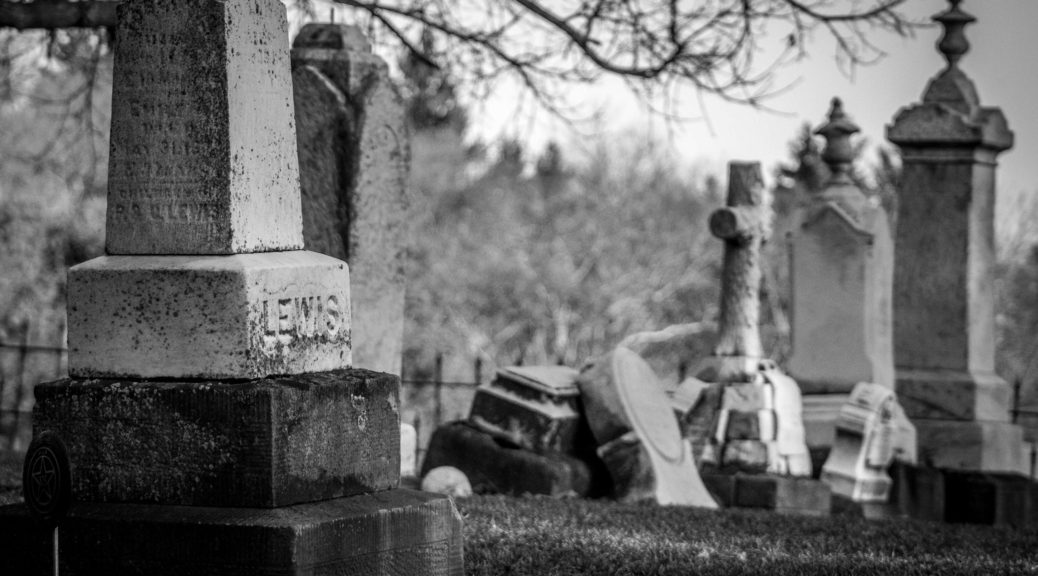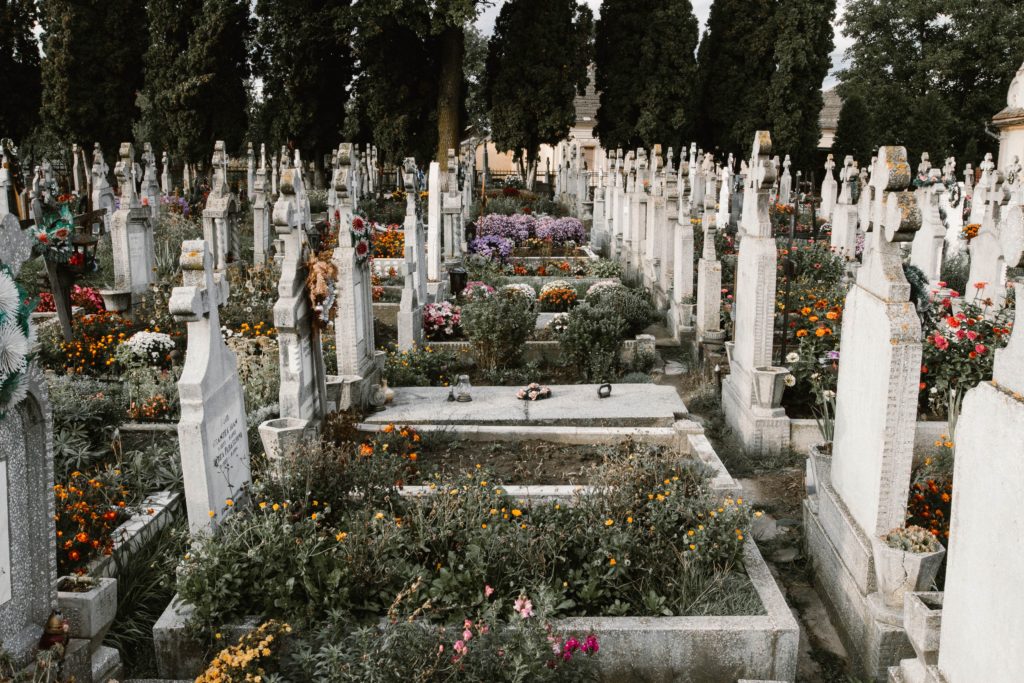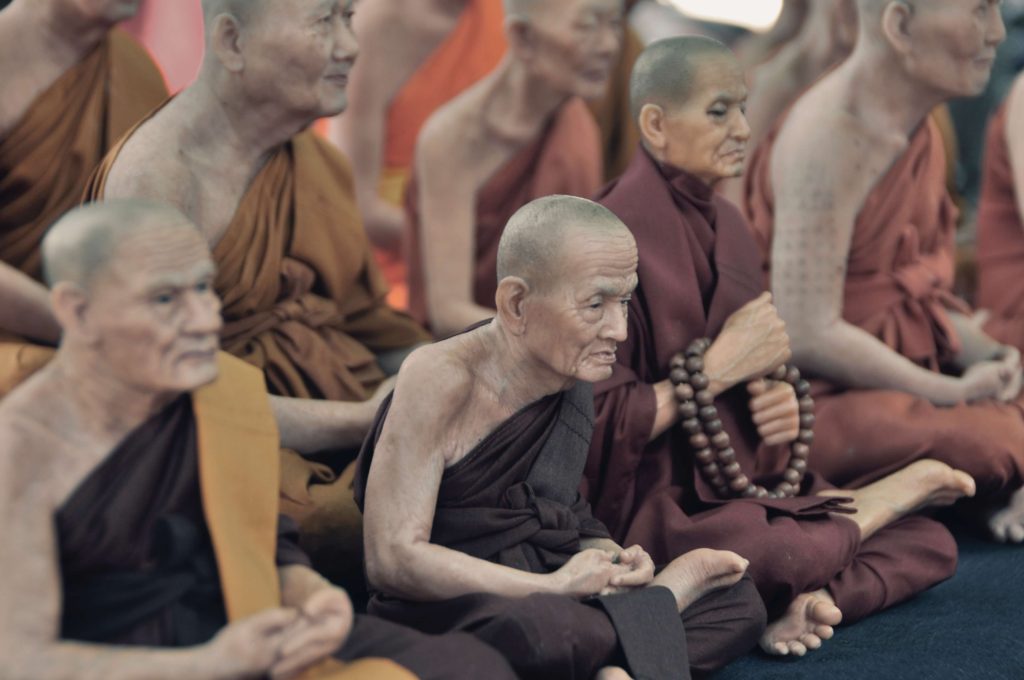
You’re Going To Die One Day
You’re going to die one day.
I’m going to die one day.
It’s something I’ve been thinking about lately. Sounds kind of morbid, right?
But is it really?
Death is the one common denominator. It’s the one thing that no one on this earth can escape. You can be as successful as you want, as wealthy as you want, as beautiful as you want. But still, one day, you’re going to die. And most likely, it won’t be pretty.
I started thinking about death thanks to a recent episode of Dan Harris’s 10 Percent Happier Podcast. If you’ve stumbled upon Being Zen, there’s a very good chance that you’re familiar with Dan Harris. His first book, 10 Percent Happier, inspired me to explore meditation in a more wholehearted way. And now, Harris is something of a spokesperson for the modern “mindfulness” movement. Even if you have reservations about the commercialization of mindfulness, if you’re interested in meditation on some level, his podcast is a worthwhile listen.
WeCroak
On this particular episode, Harris was interviewing Hansa Bergwall, founder of an app called WeCroak. The premise of the app is simple—five times a day, it sends you a notification on your smartphone reminding you that you’re going to die. The notifications take the form of thoughtful quotes on death, dying, and life in general.
It winds up looking something like this:
- I’m going about my daily business, plugging away at work or whatever it is I’m doing. Maybe I’m feeling stressed about an upcoming meeting or company politics. What if it doesn’t go well? What if we lose the account? What if I lose my job?
- I look down at my phone and see a notification from WeCroak. “Don’t Forget, You’re Going to Die One Day,” it says. “Swipe to see the quote.”
- I read the quote. It says something like this: “To get out of your anger, you can close your eyes and visualize the other person in 300 years. What will they become? Ash. And you too.”- Thich Nhat Hanh
- I contemplate the quote and the fact that I’m going to die one day. Briefly, I acknowledge that whatever random nonsense I’m thinking about at that moment most likely isn’t too important in the grand scheme of life. Or death.
- This takes maybe 10 seconds. Sometimes I’ll sit and think for a little bit longer. “This upcoming meeting, while important, isn’t going to make or break my life,” I might tell myself. “The worst case scenario really isn’t that bad. It’s gonna be fine. Being a good husband and a good son is way more important.”
Simple, right?
I thought WeCroak sounded like a really interesting way to work “mindful moments” into my daily routine. Little interludes to stop and remember the bigger picture.
What’s important?
Is what I’m worried about right now going to matter in 5 years? 10 years? 50 years?
Probably not.
Stay In Touch With Being Zen
Mindful Moments
There are many ways to work on such a practice. This particular method—centered around an app called WeCroak—is not necessarily for everyone.
Some might find it morbid. Depressing even. Why would you want to think about death five times a day?
Fair question. To me, it’s not about death, but about life. I’ve always felt that by contemplating mortality, we can come closer to learning how to live.
Of course, it’s easy to say, but does that actually mean?
What is living?
I haven’t quit my job and left home to travel the world on a sailboat or anything like that. But if I’m able to slow down and pay a little more attention, then that’s a victory in my mind. And so far, I’ve found that contemplating death brings me closer that place.
The History Of Death Meditation
Through all of this rumination, I’ve come to realize that Buddhists have a long tradition of thinking about death.
You might have heard of Maraṇasati, also known as “death meditation”, wherein Buddhists use a variety of different techniques to reflect on the nature of death. In many ancient teachings, contemplating death was said to ignite a sense of urgency in one’s practice. Early Buddhism took death contemplations to another level, with discourses like the Satipatthana Sutta suggesting that Charnel Ground meditations—sitting amongst decaying corpses out in the open— were an important part of daily practice.
As another example, Atīśa Dīpaṃkara Śrījñāna, an 11th century Buddhist scholar, spoke of death often in his writing. He even went so far as to list out his contemplations on death as a meditation.
The Nine Death Contemplations
-
- Death is inevitable.
- Death will come, whether or not we are prepared for it.
- Human life expectancy is uncertain.
- There are many causes of death.
- The human body is fragile and vulnerable.
- At the time of death, our material resources are not of use to us.
- Our loved ones cannot keep us from death.
- Our own body cannot help us at the time of our death.
Contemplating Death…So What?
I don’t think I’ll be taking part in a Charnel Ground meditation anytime soon.
But the point is, contemplating death is nothing new. And yet in the West, death is pretty much the most uncomfortable subject one can possibly broach.
If thinking about death makes you uncomfortable, it might be worth leaning into. Rather than changing the subject in your mind and thinking about something else, try focusing on it more deeply. What emotions are brought up by thoughts of mortality?
Of course, fearing death is natural. I certainly can’t say that I don’t fear death. I feel like I have so much more living left to do! And I can’t stand the thought of leaving behind my loved ones. It just doesn’t compute in my brain. Maybe one day I’ll be the type of person that can feel totally at peace with such thoughts. But right now, despite all this talk of death, and the app that reminds me of it five times a day, I can’t say that I truly grasp the nature of any of this.

There’s a flipside to mortality meditation too. WeCroak—while a positive addition to my life overall—can border on disruptive at times. It’s one more notification in the mix. One more reason to look at my phone. It can almost become another item on the to-do list. Like okay, I need to text that person back, and then I need to see if anyone responded to my email, and then I need to read the latest quote on WeCroak and contemplate the nature of death for a minute.
It can be a little stressful if we’re being honest.
I’m going to die one day. Okay, so what? I still have to pay the bills. We still need a roof over our head.
It can be anxiety producing to constantly think about the finiteness of life.
But overall, this has been a net positive experiment for me. Contemplating the nature of mortality every so often seems to be helpful. It seems to be an effective way for me to work these little “mindful moments” into my life. Once in a while, a quote resonates with me, and as a result, maybe I spend just a little less time cruising through the day on autopilot.
Maybe it’ll be helpful for you too.
Maybe not. That’s okay too. I don’t think death contemplation is for everyone, just like happy endings and love stories aren’t for everyone. I’m sure there are plenty of apps out there that provide the same sort of mindful reminders without all the morbid death talk.
But hey, maybe it’s worth a shot. Maybe thinking about death will help you remember what’s important.
Check out WeCroak and The 10 Percent Happier Podcast
Stay In Touch With Being Zen
Other Posts You Might Enjoy
How the Zen Practice of Gassho Can Add Balance and Meaning to Your Life
Featured images:
